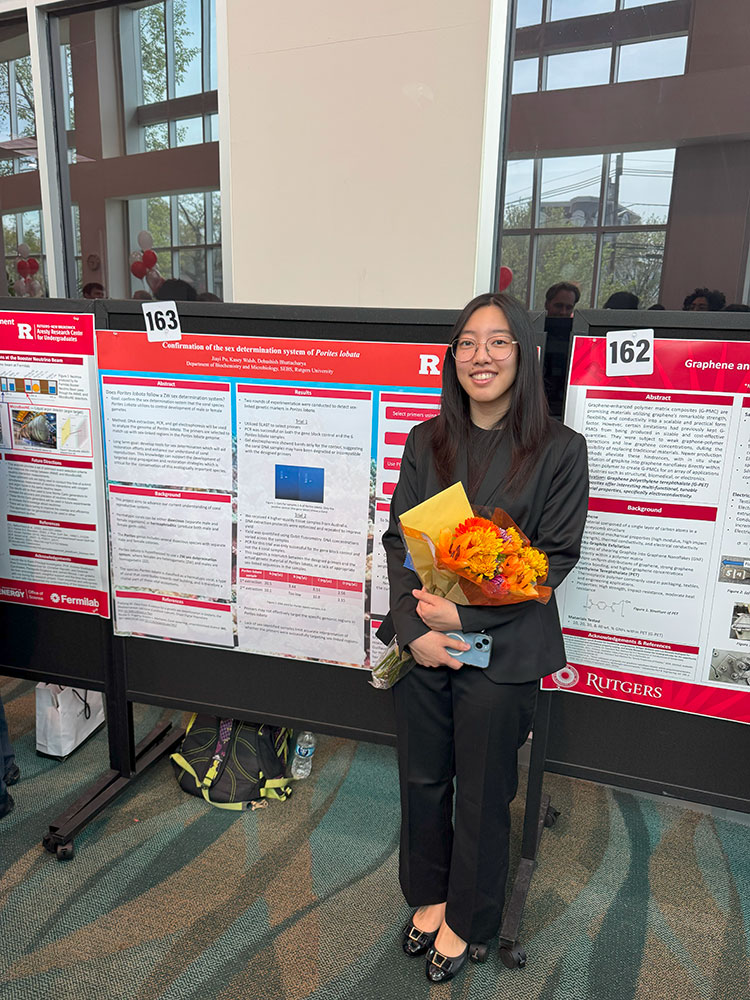
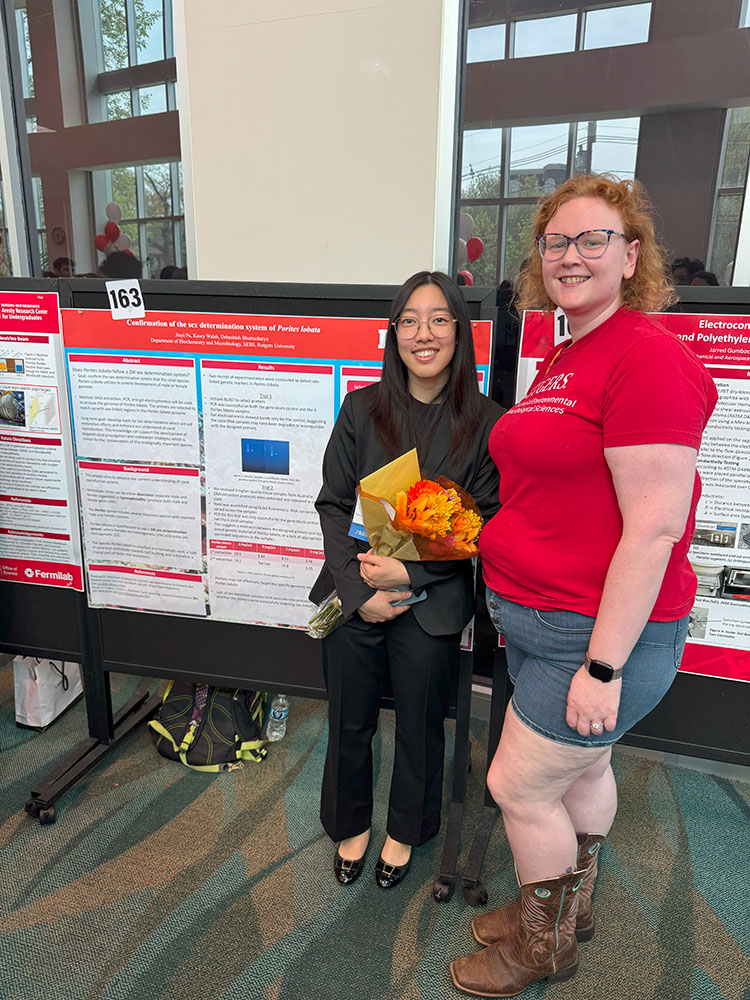


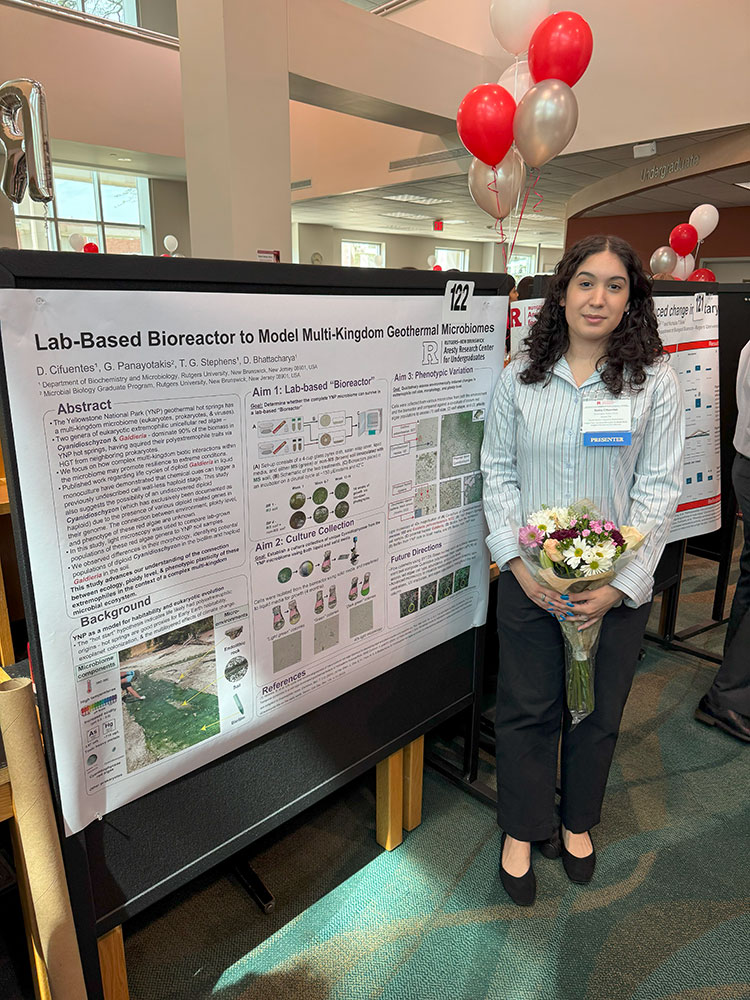
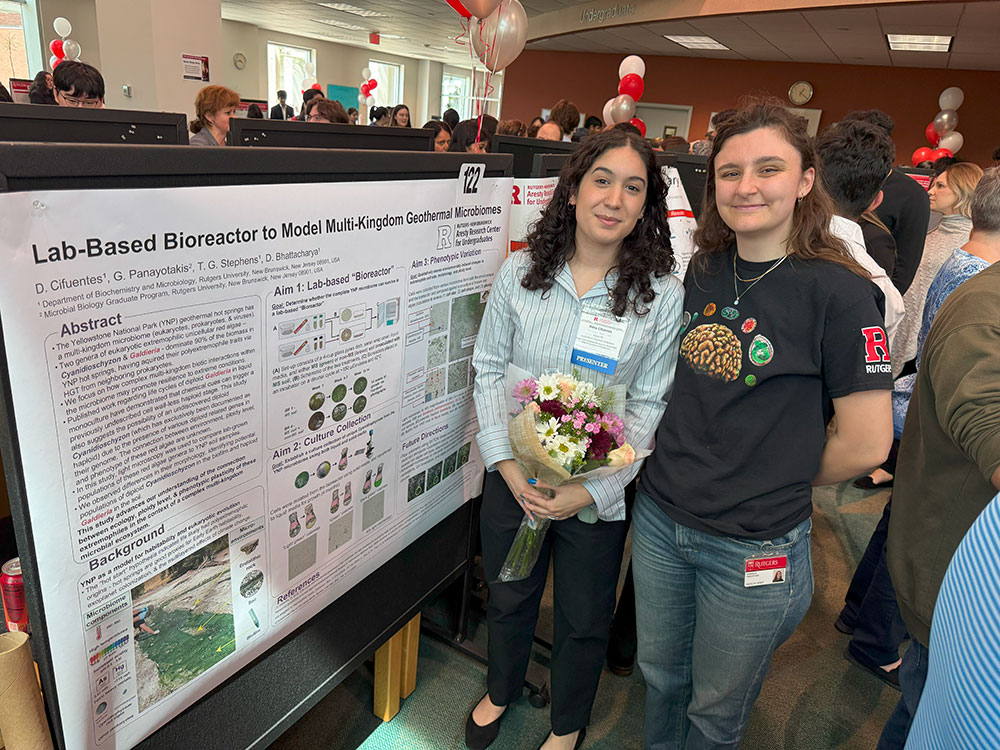
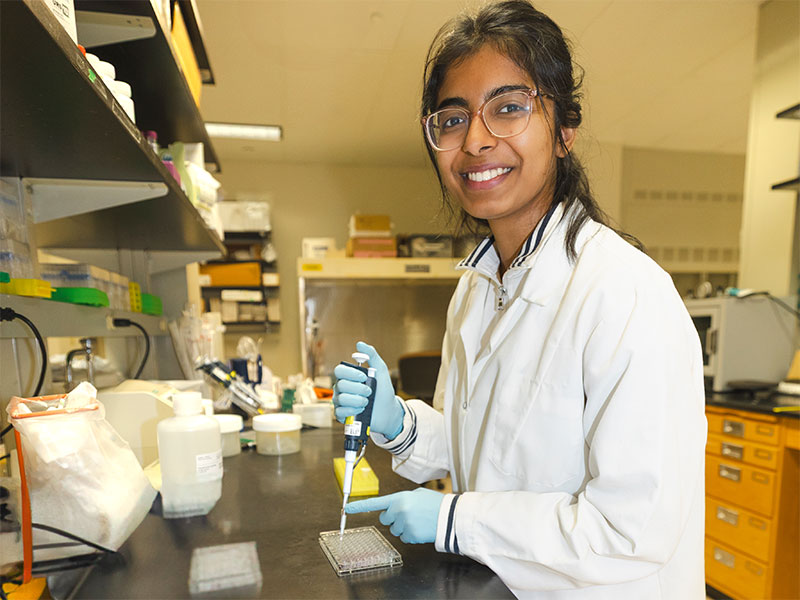
Shriya is a senior in the SEBS Biotechnology program, general option. As a New Brunswick Honors College student, she started her undergraduate research on corals in the Bhattacharya Lab in her junior year through the Aresty Research Assistant program. She continued her work with paid summer internships, and by pursuing her G.H. Cook Honors Thesis.
Shriya’s research in the Coral Hospital initiative is to test and validate whether health test kits that are developed for humans can be used on marine species, using corals as the initial test case. Corals suffer from warming oceans that can result in “bleaching” (loss of algal symbionts) and are also prone to devastating diseases such as Stony Coral Tissue Loss Disease (SCTLD) that has eliminated coral reefs in Florida and spread throughout the Caribbean region.
The research Shriya presented to the program described the testing of specific chemicals in coral tissues that act as markers of reef health. She has adapted the popular Urinalysis test kit developed to diagnose human health to corals. This approach offers a rapid and inexpensive way to assess how corals are faring in the field. The coral results are being validated using quantitative metabolomics with collaborators at the core center of the Rutgers Cancer Institute.
Shriya’s mentor, Ecology and Evolution graduate program student Erin Chille, suggested to her to apply for the D.O.O.R.S. program. It is a nationwide Mentorship and Scholarship Program, which aims to recognize and empower 10 undergraduate students each year in life science who represent underrepresented groups. It is funded by Promega and the BioPharmaceutical Technology Center Institute (BTC Institute). The scholarship supported Shriya’s tuition and advanced her research skills via the Biotechnology major. The award also includes a Mentorship Program with a professional from the biotech industry, and participation in D.O.O.R.S. Scholar’s Day 2025, an in-person event held at the BTCI / Promega campus in Madison, WI.
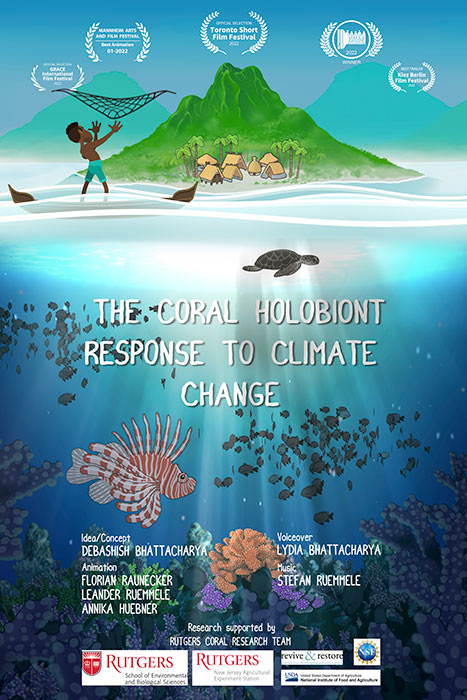
Coral reefs make up less than 1% of the ocean floor but are home to about one-quarter of all marine biodiversity. Providing sustenance to hundreds of millions of people worldwide, coral reefs also act as natural shock absorbers, protecting low-lying communities from wave surge. These magnificent ecosystems are however in grave danger due to human-caused climate change that is warming and acidifying the world’s oceans. Our film introduces the coral holobiont and explains how scientists are using modern genomics tools to aid coral reef conservation.
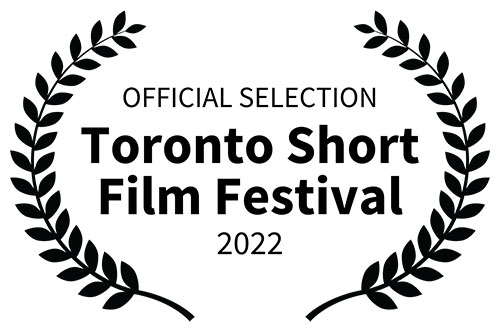

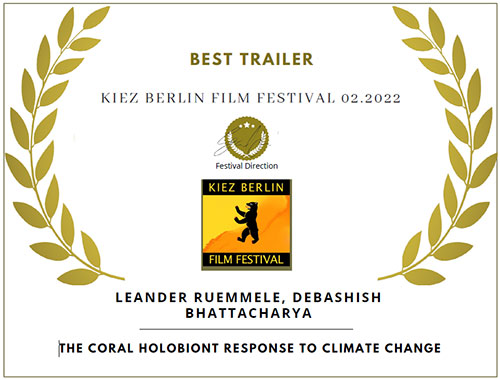

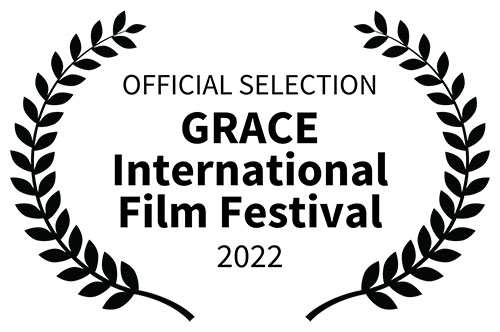
The prizes are:
Chicago VAiFF – Winner 2022 – Best Children / Family
Toronto Short Film Festival – Official Selection
Mannheim Arts and Film Festival – Best Animation
Berlin Kiez – Official Selection
Berlin GRACE- Official Selection